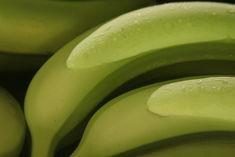
In an attempt to combat food waste, a PhD student from the University of Nottingham has developed a simple method of making fuel from bananas.
Joel Chaney in the Faculty of Engineering has been working on ways of producing the briquettes using minimal tools and technology, which could be used in communities all over Africa.
Chaney was alarmed at the amount of the fruit left to rot in countries such as Rwanda and has researched ways of re-using waste product productively.
The banana skins and leaves are mashed to a pulp in a hand-operated domestic meat mincer. This pulp is mixed with sawdust to create a mouldable material, the idea being that in Rwanda it would be mixed with sun dried banana stems, ensuring the whole plant is used.
The pulp mix is then compressed into briquette shapes and baked in an oven at 105 degrees - in Africa the fuel would be left for a few days to dry in the sun - creating excellent fuel for cooking and heating.
“A big problem in the developing world is firewood," said Chaney. "Huge areas of land are deforested every year, which leads to the land being eroded. People need fuel to cook and stay warm but they can’t afford the more expensive types, like gas.
“As well as the environmental damage this causes, it also takes a lot of time. Women can spend four or five hours a day just collecting firewood. If an alternative fuel could be found they could spend this time doing other things - even generating an income.
“Using waste to create fuel is key to sustainable development, and this method could be easily transferred across Africa.”



